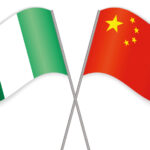The term Value Added Tax (VAT) is a revenue tool used to fund government special intervention projects and socio-economic issues. It is based on consumption of taxable products and services. It is usually added to a product at every point on the supply chain where value is added to it. It was first conceived in America to enable it to raise funds to execute a war by the then president. VAT is a major revenue source to remedy the budget deficit of most nations. Though, the final burden is borne by the consumers of the products and/or services.
Nigeria today, the fire work on VAT collection is on at the moment between the federal government, represented by its famous tax and revenue agent, FIRS as well as Rivers and Lagos states which have passed legislation in each state’s assembly to have absolute power of VAT collection. The matter is now with the Apex court of the land to decide on the inherent right of who is to collect the VAT between federal government agents and state government agents. While we await court verdict on the matter, the usual thin line of division between northern region and southern region on political and economic issues have resurfaced. Southern governors in their recent summit have demanded for the states to collect VAT, alluding by one of them, that the northern region which barred the consumption of certain commodities cannot share in the VAT accruing from such product. On the other hand, some of the northern governors reacted by disagreeing for state collection of VAT on the premise that VAT itself is a consumption tax placed on products and /or services which its determinant is based on volume purchased by final consumers that make up the population of people that consumes the products and/or services.
- Obasanjo, Adeboye, others pay tributes to National Stadium designer, Fola-Alade
- Nollywood movie “Voiceless” receives 15 nominations at Universal movie awards
Needless to say but for emphasis sake, the VAT Act as (amended 2007) prescribes means by which VAT can be collected from imported products and/or services provided by no-resident companies or individuals in transactions involving VAT taxable products and/or service. Therefore, the two notable solutions to the above obvious imbroglio between FIRS and states that dragged it to court is to apply the concept of destination-based tax or principle and reverse charge method.
1. Destination Based Tax: The principle is based on the location of the consumer and the official rate is applied to the sales price, in this case the products and/or services brought into a state from non-resident companies or individuals outside the state that are VAT taxable most be collected in the location of consumer’s residence state. The credit invoice base is the best for all VAT taxable transactions done with non-resident companies. Here, sales transactions are taxed, the customer is informed of the VAT on the transaction and deserved VAT is remitted to the state authority’s revenue board.
2. Reverse charge method: According to Udo Udoma& Bello Osigie, this method requires the recipient of taxable goods and/or services to withhold and remit the applicable VAT on the transaction instead of the supplier. The Finance Act imposes an obligation on a non-resident company to include VAT on its invoices for the supply of taxable goods and/or services to a Nigerian resident entity. It further requires the Nigerian resident person to whom such goods and/or services are supplied in Nigeria to withhold the applicable VAT and remit the same directly to the FIRS in the currency of payment. Again, in absence of VAT tax on invoice for supplied taxable goods and/or services, the Nigerian resident shall self-account for the VAT on the supplies. In the case of the issue at hand, states will assume the position of Nigeria as regards non-resident companies outside, transacting with residents of other states.
Better still; the tinkering of sharing formula should be redesigned to capture fairness in the distribution of VAT generated revenue. In my opinion, let the population principle be allocated 70% of whatever is generated from VAT owing to the fact that the VAT itself is a consumption tax and not production tax, as seen in the case of sales tax. Then going further, the equality principle should be given 10% as a way of being generous to the federating units whether with meaningful contributions or not in terms of consumption of productions and services provided.
Lastly, the derivation principle should be allotted with 20%; with this, it will solve issues of externalities of any kinds that would come up as results of industrial activities within the surrounding environment of production activities.
Abdullahi Ocheja S. Writes from Abuja
 Join Daily Trust WhatsApp Community For Quick Access To News and Happenings Around You.
Join Daily Trust WhatsApp Community For Quick Access To News and Happenings Around You.


